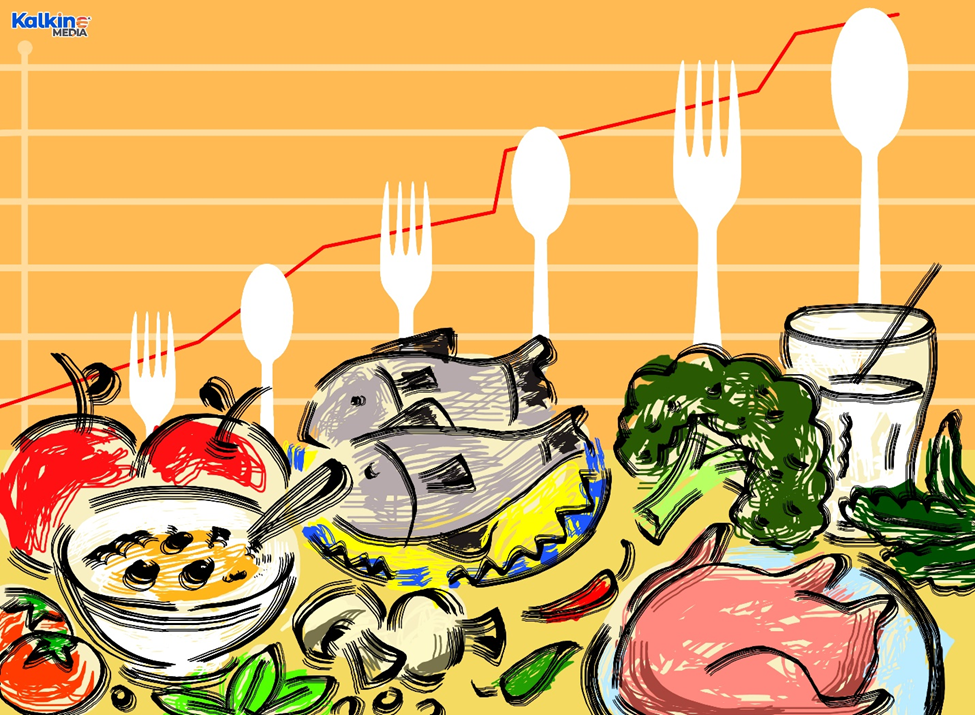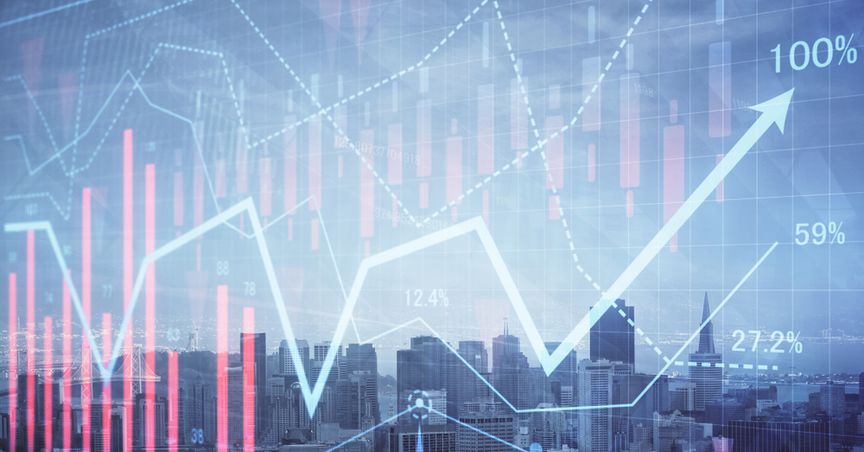Highlights
- According to a report published by Barclaycard, consumer card spending was 7.4% higher as compared to January 2020, the weakest surge since April 2021.
- Spending on essential items grew 10.4%, the weakest in nine months.
- As per the survey, people said that their finances and spending were affected by the rising cost of living.
Soaring prices have been haunting people across the country. And things could get worse in the coming months. UK’s largest retailers have warned that the soaring inflation will hit consumers hard with prices of energy, food, national insurance contributions etc. all going up. This will simultaneously squeeze the household finance in the coming months.
In the last month of 2021, consumers tightened their spendings as the omicron wave hit the UK, which led to a slew of cancellations of events and parties in bars and restaurants. Inflation rate too touched a 30-year high of 5.4%, making it the highest since 1992.
In January 2022, as the Plan B Covid restrictions and rising inflation hit hospitality, leisure, and retail, the UK’s shoppers spent less on their credit and debit cards, compared to December. According to the report, consumer card spending was 7.4% higher as compared to January 2020. This was the weakest surge since April 2021.
Supermarket spending saw its weakest increase to 13.6% as compared to the pre-pandemic level. The report also revealed that consumers are shifting their spending towards food and drink. Customers were working from home and choosing to shop locally, and after the festive season, have restarted meal kit subscription.
Further, spending on essential goods and services grew by 10.4%, the weakest rise in last nine months as fuel spending saw its slowest growth of 6.7% since October 2021, and spending on non-essential items increased by 6.1% as compared to 11.5% in December
Also Read: Rising energy bills: 5 stocks you want to put on your watchlist
The report revealed that out of 2,000 adults surveyed, 89% said that their finances and spendings were affected by the rising cost of living. Around 30% said that the hike in the energy price cap would affect their overall expenditure, especially the amount they spend on discretionary purchase.

© 2022 Kalkine Media®
Image description: Spending on essential items grew 10.4%.
Last week, the Bank of England increased the interest rates to 0.5% from 0.25% as the inflation rate surged unexpectedly to 5.4% in December and warned that inflation could hit 7.25% in April, which was previously projected at 6%.
On the other hand, Energy regulator Ofgem also announced that the UK’s energy price cap will rise by 54% to around £1,971 in April, which would mean prices will increase by £693 from 1 April 2022, indicating more hikes in cost of living and drop in overall household income by 2%.
Impact on different sectors
Spending in clothing plunged by 4.9%, face-to-face retail spending, excluding groceries dipped by 8.5%, and sports and outdoor retailers saw a weaker growth of 14.5% in January as compared to 8.8% and 22%, respectively, in December 2021. Furniture stores and home improvement & DIY retailers performed comparatively well, as spending were up by 22.3% as compared to 21.5% in December. Pharmacy and health & beauty retailers saw a strong growth of 12.8%.
The hospitality sector saw a drop in spending by 6.3% after five months of growth, where restaurant spending plunged by 17.5% as compared to 14.1% in December. Bars, clubs and pubs spending also saw a smaller month-on-month hike of 21.2%.
With the emergence of the Omicron variant in December, the government-imposed plan B restrictions impacted the travel sector as public transport saw a decline in spending by 44.4% in January as compared to 28.1% in December.
Also Read: Cost of living crisis: Bank of England expected to hike interest rates
Future imperfect?
According to the survey by Barclaycard, around 25% of the adults in UK are expecting a surge in spending on items to stay motivated. While 39% are planning to spend their money on food and drinks in bars and outdoor eateries, 31% said they would spend more in-store and socialising as they feel confident after taking the vaccine booster.
Jose Carvalho, Head of consumer products at Barclaycard, said COVID restrictions with the rising cost of living clearly impacted consumer spending in January. But after the restrictions were lifted, various sectors could get a boost. Allowing indoor and outdoor events at hospitality venues will lift customer spending.
It is expected that Valentine’s Day will give a 28% boost to retailers and hospitality outlets. As per the survey, 29% of the people are planning to celebrate Valentine’s Day and buy a gift for their partner, while 30% plan to eat out at restaurants.
Experts said that these economic slowdowns are likely to persist over the coming months, but improvement can be expected in the travel and hospitality sectors.
Let us now take a look at some stocks that may be affected:
- Marks and Spencer Group Plc (LON: MKS)
FTSE 250 constituent Marks and Spencer Group Plc has given a return of 42.36% to its shareholders in the last one year and its year-to-date return stands at -14.89% as of 8 February 2022. Its shares were trading at GBX 196, down by 0.33%, at 9:15 AM BST, with a market capitalization of £3,868.53 million on 8 February 2022.
- Tesco Plc (LON: TSCO)
FTSE 100 Index constituent Tesco Plc has given a return of 18.43% to its shareholders in the last one year and its year-to-date return stands at 0.66% as of 8 February 2022. Its shares were trading at GBX 291.75, up by 0.12%, at 9:15 AM BST, with a market capitalization of £22,289.77 million on 8 February 2022.
Also Read: ITM Power, Ceres Power Holdings, BP: Should you buy these stocks?
- Mitchells & Butlers Plc (LON: MAB)
FTSE 250-listed Mitchells & Butlers Plc has given a return of -20.53% to its shareholders in the last one year and its year-to-date return stands at -1.02% as of 8 February 2022. Its shares were trading at GBX 253.60, up by 1.72%, at around 9:15 AM BST with a market capitalization of £1,502.84 million on 8 February 2022.
- Intercontinental Hotels Group Plc(LON: IHG)
FTSE 100 constituent Intercontinental Hotels Group Plc has given a return of -2.11% to its shareholders in the last one year and its year-to-date return stands at 3.85% as of 8 February 2022. Its shares were trading at GBX 4,968, up by 2.12%, at around 9:15 AM BST, with a market capitalization of £8,952.39 million on 8 February 2022.



